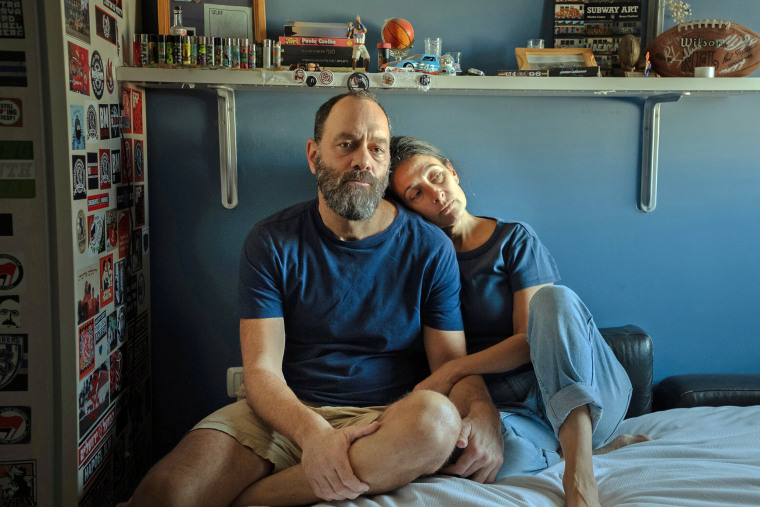Of the almost exactly 200 days of torture we, the families of the hostages held in Gaza, have suffered through since Oct. 7, Shabbat (the Jewish Sabbath) and holidays are the worst. How can we celebrate anything when our loved ones remain in captivity in tunnels under Gaza?
How can we celebrate anything when our loved ones remain in captivity?
Within the heightened torment of holidays, Passover in particular expands the boundaries of agony. As one of the paramount texts of the Haggadah (the guidebook for the traditional Passover Seder) asks: mah nishtana haleila hazeh mikol haleilot, or how is this night (or year) different from all others?
First, Passover signifies family; statistically, Passover is the most widely celebrated Jewish holiday, with an estimated 96% of Jewish Israelis and the majority of North American Jews participating in a Passover Seder. This year, the families of the hostages, and the global Jewish family, are incomplete.

Second, the main theme of Passover is freedom. This year, for so many, there is no freedom — not for our son, not for any of the 133 hostages still being held in Gaza, not for our family and the families of other hostages. There is no freedom for the Israeli people, who are still very much traumatized from the events of Oct. 7 and have not yet begun the difficult and lengthy healing process required, and no freedom for the innocent people suffering in the Gaza Strip.
There is much talk this year about innovations at the Seder to note this year’s heaviness. Many may add a fifth question to the traditional four questions. Here is my fifth question: Where is the world as these diverse, human souls approach 200 days in captivity?
According to figures from the Israeli Foreign Affairs Ministry, among the remaining hostages are citizens of 25 countries and of five religions, and they range in age from 15 months to 86 years old. Though we all prefer simple versions of black and white, of right and wrong, this hostage story is multinational, multifaith and complex. This is a truly global crisis.
When will the leaders of Argentina, Austria, Brazil, Bulgaria, Canada, Colombia, Denmark, France, Germany, Hungary, Israel, Lithuania, Mexico, Nepal, Poland, Portugal, Romania, Russia, Serbia, South Africa, Tanzania, Thailand, the United Kingdom, Ukraine and the United States — each of whom the Foreign Affairs Ministry says has citizens in captivity — stand arm in arm to call for the immediate release of their citizens as a global, inalienable human right?
We similarly call on Jewish, Christian, Muslim (yes, there are Arab Muslims still being held), Buddhist and Hindu clergy to stand together and, in the spirit of this Passover season, declare dayenu! Enough!
World leaders: Where is your humanity? Religious leaders: Why are you standing idly by as your brothers and sisters suffer?
The question is asked about the biblical tale of the 10 plagues that were brought upon ancient Egypt in the process of unhardening Pharaoh’s heart: Why were these plagues brought upon all of Egypt? Surely some Egyptians were not active participants in the enslavement of the Israelites. A classic response is that even those Egyptians who were not active participants in the enslavement did not raise their voices against the injustice; silence is complicity. Why do our leaders remain similarly silent today?
Of the remaining hostages, at least 36 are confirmed to be no longer alive. The status of many dozens more is in doubt. World leaders: Where is your humanity? Religious leaders: Why are you standing idly by as your brothers and sisters suffer? How will you explain your silence to your Maker if the eventual hostage release includes 133 coffins?
Ramadan is over. Easter has ended. Let us not allow Passover to pass us by without joining together and demanding that, as we eat the bread of affliction, we must end this round of suffering for all innocents in the region. Let us use this holiday to begin the process of rehabilitation and the path to peace.